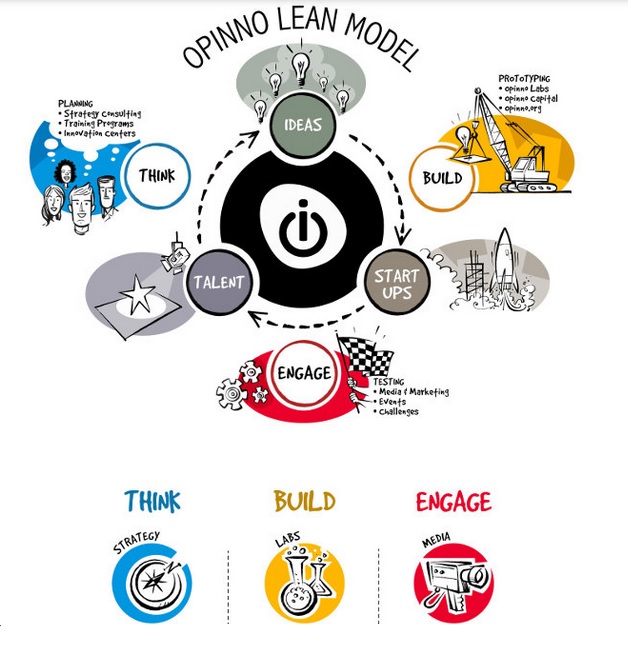Concepts and methodologies that continuously appear but aren’t understood, Opinno is here to help.
They are in fashion. We hear them being mentioned continuously when we talk about technology, innovation and businesses.
Lean methodology has converted into the latest “shout out” in the business world, the reason is simple: startups, or new business, demand a new management model, something dynamic and different, the path it uses until starting the lean startup process.
It’s not easy to keep up with technology in a constantly changing age like that we live in, and it’s much less easy to understand the new terminology that is being baptized with these transformations.
In all businesses it’s common to make the mistake of taking too much time and resources in order to develop a product without knowing what it is, what the market demands and the public’s preferences. This waiting process means that when you launch it into the market, you are met with a lack of space to put it in.
This takes us to a precipice with the product in which we have inverted time, money and business ideas that could have been useful if they had been applied more efficiently.
What role does Lean Startup methodology play in all of this?
At Opinno we work using three business directions, this model: we define the ideas working along side knowledge in the current market and we include these ideas into our products using the Build team. We validate its working to find out whether they are adequate or no thanks to Engage and in case it doesn’t fit into the market, the process is repeated the necessary times adding and making modifications with the Think department.

This process can be carried out as many times as is necessary until the product meets the client’s needs. Lean Startup methodology isn’t about avoiding failing on the first attempt of launching a service into the market, but to make it a “cheap” failure as we have spent less time and material and economic resources on it.
Learning continuously with the market is fundamental for the development of a successful product and adapting to the necessities of the public, using the PULL strategy methodology. This is the objective of the Lean Startup method, a way of listening to the market, learn from it, adapt to it, and make the most of the resources it provides.
At Opinno we work shoulder to shoulder with this process and we help and guide small and large companies to use it in their business to make the available resources profitable, and in a age of crisis, this is difficult to obtain.
But, what previous model is the production system based on?
In order to understand the Lean Startup method, we must first know what we mean when we talk about the organization system ‘Just in Time’ (JIT), focused on increasing productivity and the PUSH y PULL strategies.
These two focuses refer to the methodology used when we cover the client’s demands. The first, the PUSH strategy, is based on the production on a determined of units (depending on the provisions and sales) and of its ‘push’ towards the market.
The use of this complicates the profitability of the resources because they run the risk of excess in stock and, in the other extreme, they can be insufficient against the large demand and lose business opportunities.
On the other hand, the PULL strategy consists in producing only the necessary quantity of a product and distributing it according to the market demand and the client’s requirements. This type of technique profits the level of production adapting it to the real demand, or simplified, “without waste”. This is where the name Lean methodology comes from.
What can be understood from these two ideas is that if we create a company, we create a business plan in which we know neither the demand nor the market, and we aim to separate ourselves from reality, using the PUSH method, benefiting our company.
This is why lean methodology is fundamental for the PULL strategy, focusing on the effectiveness of a product and the lowering of costs to launch a product, something that businesses, including Opinno, as mentors of this dynamic, prioritize nowadays.



